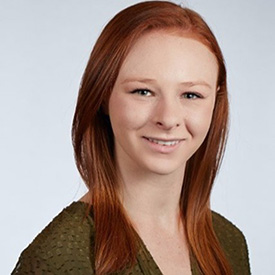The interview below is part of an ongoing effort by McGuireWoods to profile women leaders in private equity (PE). To read previous profiles, click here. To recommend a woman for a future interview, email [email protected].

Q: What both attracted you to PE but potentially concerned you about this chosen career path?
Emily Castle: I was attracted to PE for the opportunity to develop both quantitative financial and qualitative market research skill sets and for the opportunity to work directly with management teams to help grow better businesses. Early in my career, I was concerned about juggling multiple deals across different industries and at varying stages at the same time; however, this has proven to be one of the most interesting and rewarding aspects of the job. I enjoy finding connections and sharing best practices and lessons learned across companies and believe that this is one of the most meaningful ways PE firms can help companies succeed, apart from providing growth capital.
Q: What is a lesson that you have learned concerning what’s required for success in PE?
EC: I have learned the importance of mentorship, through both formal programs and relationships that develop organically. In this job, your day-to-day workstreams and priorities are constantly changing, and you quickly take on a lot of responsibility. It’s crucial to have a sounding board for questions and concerns on everything from navigating relationships with management teams, to staffing, to longer-term career goals. It’s also important to know that you have someone on your side to advocate for you and provide support and encouragement.
Q: Why is it important for more women to pursue careers in PE?
EC: It is important for women to pursue careers in PE both for the long-term success of PE as an industry and as an avenue for women to rise to leadership positions and use that influence to advocate for women across society as a whole. Without women’s perspectives, funds will miss opportunities or struggle to connect with increasingly diverse management teams and deal sources. PE plays the unique role of aggregating and distilling best practices and lessons learned across our portfolios. Women in PE can encourage our companies to hire female leaders and put in place human resources policies that protect and promote women in the workplace and then demonstrate that these decisions are not only good for women but good for business as well.
Q: How do you believe women of your generation will be able to influence in the PE industry, particularly as the career path continues to evolve?
EC: My generation is lucky to have entered the workforce at a time when women make up close to 50 percent of incoming classes across banking, consulting and PE. This provides us with a built-in support network of female peers and allows us to feel welcome, included and on an equal footing with our male counterparts. I think this strong foundation will allow us to positively influence the industry as we move into middle- and senior-level positions. We will invest in female-founded companies that may have previously been overlooked, hire more women on management teams and boards, and advocate for changes, such as more video conferences and less travel, making PE more family-friendly for both men and women. I’m excited to see where this new generation of women in PE takes the industry and so grateful to be a part of it.
To contact Castle, email [email protected].